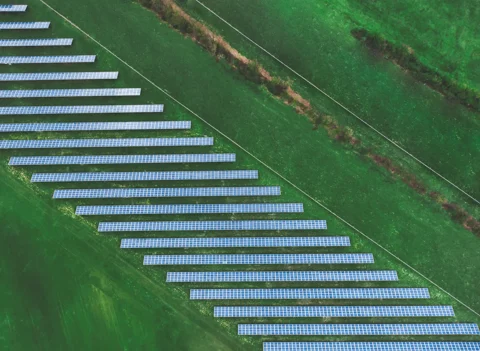On October 21st, the largest pension funds of the Netherlands look back on the financial results of the third quarter. An appropriate moment to address some key questions. Is the value growth of APG’s clients’ portfolios during the pandemic likely to continue? Are bonds still attractive to an institutional investor? And if so, why? What are the implications of Covid for office space and the urban real estate market? And why is APG, as a believer in active investing, moving into index investing? APG’s Chief Investment Officer Peter Branner looks ahead and shares his vision on the basis of four statements.
It’s All Over Now? Last year we have had a bad economy and really great realized returns. Are those returns ‘borrowed from the future’? (Or is the story that Covid has been a support for the economy in the longer term?)
"The value of our clients’ portfolios fell after Covid hit, and instantly began recovery when governments and central banks started to support the market and the economy with fiscal as well as monetary stimulus. Before the end of 2020 the value of the portfolios was higher than before the pandemic. There are four reasons for this: the interest rates were lower, government support kept the economy going, the vaccine race provided strong hopes of a way out of the crisis, and APG happened to own, on balance, more of the securities that benefited from the pandemic and the economic support (and other events that took place during the year), than the market.
If there will be a time to “pay back” we don’t know. What we do know is that central banks and governments will dial back support, which will put pressure on asset prices. On the other hand, investors may be willing to continue to pay higher prices for risky assets, because they have learnt that policymakers are capable to steer away from disaster. Besides, the economy may start a new growth trajectory, driven by investments in clean energy and supported by new ways of working and collaborating. Markets will find a balance between these opposite vectors."
Bond Theme. ‘The future of bonds ain’t what it used to be’. The trend of declining interest rates is unlikely to continue and may even reverse. That makes bonds a lot less attractive from a return viewpoint.
"The interest we get on a bond is negative, so we pay money to own them. One main reason we would continue to hold them is the possibility that the interest goes even more negative, increasing the value of the bonds we have. And this has indeed been the case on average over the last 20 years. Shorter term, this would happen in a financial crisis, or when central banks go on lowering interest rates to achieve their inflation goals. Yet we already saw that in the 2020 covid crisis and the interest rate did not fall by that much, so owning bonds did not help our clients as much as they used to.
The silver lining here is that the current value of our clients’ liabilities, the pensions to be paid out in the future, behave like a bond. So if bonds are a less attractive asset to own, this also means that liabilities are not as risky to have taken on. This has been and still is the main argument for owning bonds for pension funds."
I’m A Loser. The Dutch architect Rem Koolhaas is on record saying ‘Nowadays, city dwellers are losers’. Does Covid imply bad news for office space and urban real estate?
"The affordability of urban housing is under huge pressure. This is partly demand driven: people flock to cities for the economic, social, educational and cultural opportunities cities offer (including the presence of exciting architecture from Koolhaas and his peers). Covid has helped change the way people meet, socialize, work and collaborate. It is not yet clear, how this impacts the amount of floor space an office worker need, hence it is not a given that this will decline. What is clear is that the requirements for offices become harder to meet. Offices still need to be easy to reach by public and private means of transportation, become more resource-efficient and have excellent and robust technological infrastructure. Inner city development, concentrated around public transport hubs, remains one of the most sustainable ways of providing society with ways to interact."
Play With Fire. Meme stocks, bitcoin, etc. - markets seem like a game these days. Flows seem more important than fundamentals. Does not sound like efficient markets. So why is APG moving into index investing?
"Active investing means choosing what securities and assets to buy in a certain market, instead of just buying the market index exactly. To do that, our investment managers need to figure out what the value of the assets in a market could be, and pick the most attractive. This costs money, so active management needs to deliver more return than the costs. It costs time, because it may take a while before those attractive investments indeed bring in more money than the index. And it takes a bit of luck, because the assessment may be wrong. It is a bit similar to a sports game: even the best trained team, with the most skillful coaches and players, will not start scoring in the first minute and will not win every game. But it has a good chance of ending up in the top of the table at the end of a long season.
APG knows how to do active management, and is convinced it can add value, but we have to acknowledge that, based on cost and risk considerations, not all clients want to take an active approach in all markets they invest in. And given our size, APG is able to help those clients as well with our innovative responsible index solutions."



